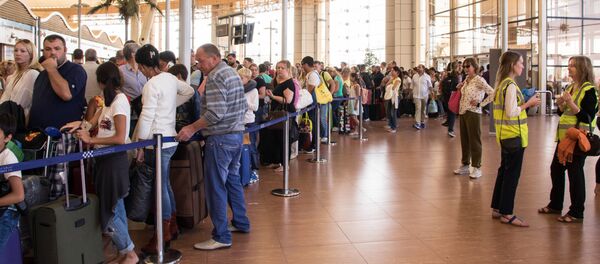Over the last two weeks the EU has furnished information to the US about how the Union is trying to improve airline security, as well as about the possible safety risks of having a concentrated number of lithium battery-powered devices aboard airplanes.
Despite this, there are concerns that Washington may have already decided to extend the ban on devices larger than a cellphone on flights entering the US from Europe.
Citing fears that an explosive could be disguised as a laptop, the US announced in March that passengers on flights originating at 10 airports in the Middle East would not be allowed to bring devices larger than a cellphone into the passenger cabin. Laptops and other larger devices must be carried in checked bags.
The ban covers airports in Turkey, Saudi Arabia, Qatar and the United Arab Emirates. Britain shortly after enacted a similar policy that only applies to six countries.
Since 2014, officials have been particularly concerned that al-Qaeda bombmaker Ibrahim Hassan al-Asiri might be helping Syrian extremists develop new explosive devices are that are more difficult to detect. It is thought that al-Asiri may be connected to several al-Qaeda bomb plots in Yemen.
A US official has said there is no connection between the upcoming meeting with EU officials and Washington’s decision on the ban extension, and that ultimately the US would decide based on its intelligence.
If the ban is extended it could affect British Airways, United, Delta, Air France-KLM and Lufthansa flights, among others.
Airport Council International Europe reports that on a weekly basis, around 3,684 flights operate between Europe and the US.
Notes from a European Commission meeting obtained by Reuters indicate that if the US does decide to extend the ban, it will give the EU three weeks notice.




